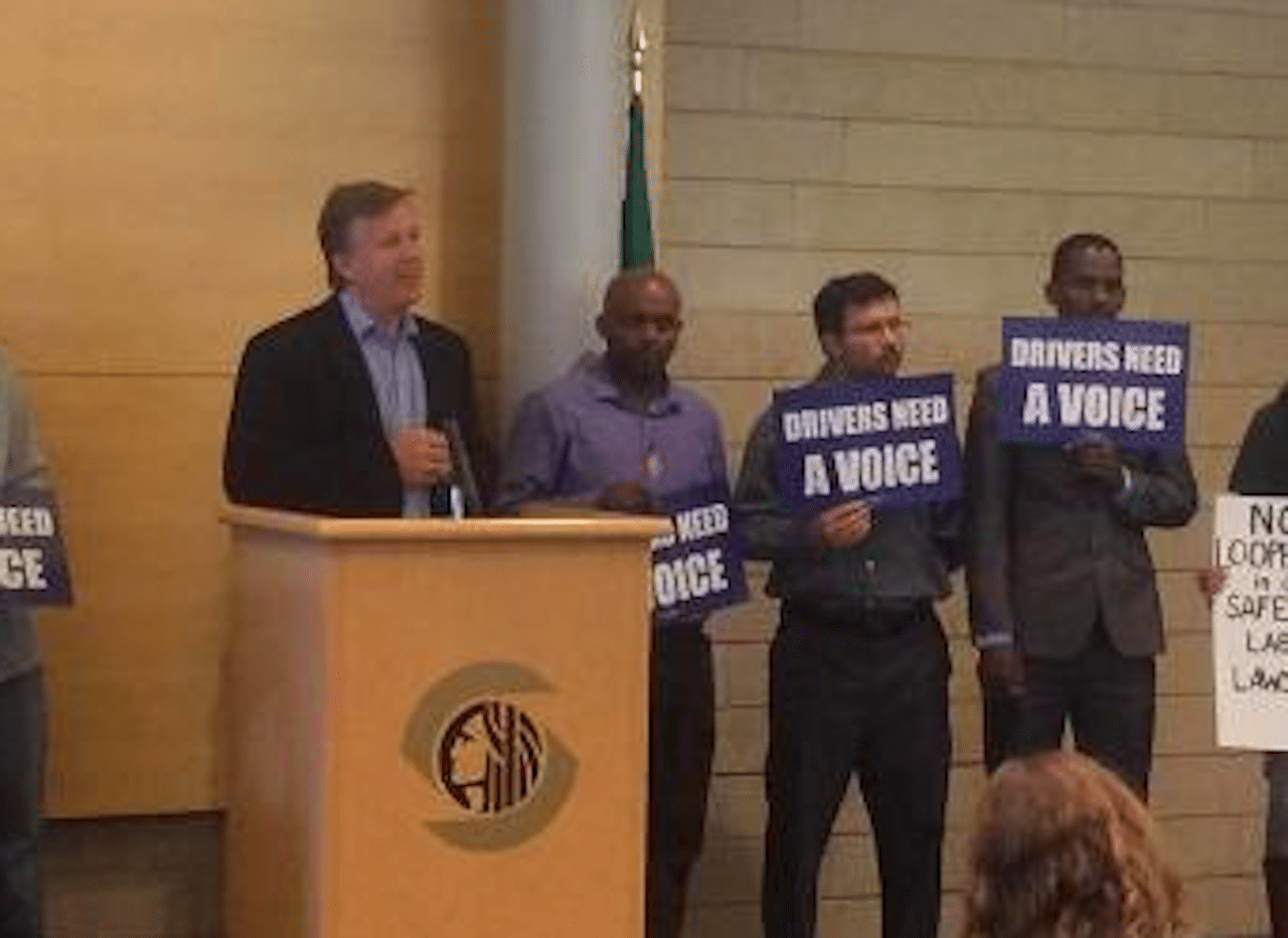Last month, far-left Seattle City Councilmember Mike O’Brien partnered with Teamsters Local 117 to introduce legislation that would allow independent contractors, such as Uber drivers, to unionize. The bill seeks to force for-hire vehicle companies to collectively bargain with organizations representing drivers.
Last week, members of the city council’s finance committee moved the bill forward with unanimous approval.
As Shift reported, the legislation would make Seattle the first city in the nation to require companies to bargain not with employees represented by a union, but with independent contractors. If passed, the bill promises to set a precedent with the potential to impact more traditional businesses which rely heavily on contract workers, such as Microsoft. The Seattle Times,
“Under the legislation, drivers for each company would choose by majority vote a nonprofit organization to serve as their representative in collective bargaining…
“Breakdowns in the bargaining process required by the legislation would lead to arbitration, and the resulting contracts would be enforced by the courts. The city could fine companies or revoke their licenses to enforce the legislation.”
The Seattle City Council has not yet set a date to hold a final vote on the bill. However, if it passes and the mayor signed it, the city would most certainly face a lawsuit. As opponents argue, the bill conflicts with federal law. The Seattle Times,
“The National Labor Relations Act (NLRA), which grants employees the right to collective bargaining, doesn’t do that for independent contractors, the opponents note. Further, they say, local governments lack the authority to regulate collective bargaining.”
As Shift pointed out, O’Brien’s legislation would not be the first time members of the Seattle City Council attacked the ride-sharing industry. The council spent a better part of 2013 debating regulations for services like Uber and Lyft. All that debating resulted in what was expected to be strict regulations on Seattle’s ride-share industry in early 2014.
The regulations were the council’s attempt to accommodate special interests which help fund their campaigns—particularly Seattle’s taxi monopoly and labor unions—at the expense of innovative transportation services. However, Lyft and Uber did not take the attack sitting down.
The two companies launched a campaign for a ballot referendum that would have allowed voters to decide on whether to keep or throw-out the regulations. The referendum garnered enough signatures, automatically suspending the regulations until a vote could take place.
Eventually, due to backlash, the council voted to repeal the regulations they previously placed on the ride-share industry and opted for a compromise Seattle Mayor Ed Murray was forced to broker between the ride-share industry and Seattle’s taxi monopoly.
O’Brien’s bill—and his fellow councilmembers support—further exposes just how far Democrats will go to appease special interests. Democrats have proved, time and time again, that they are more than willing to implement stifling regulations that hurt innovation in order to benefit the unions that heavily fund their campaigns.




